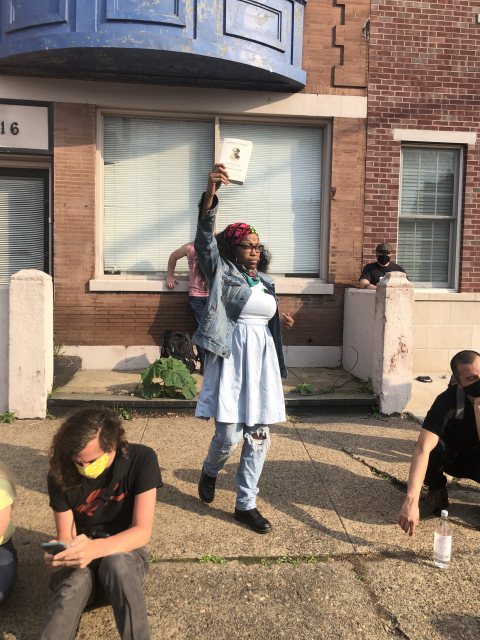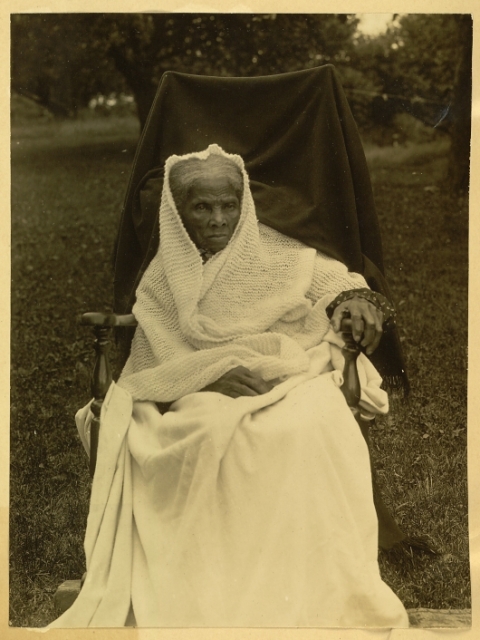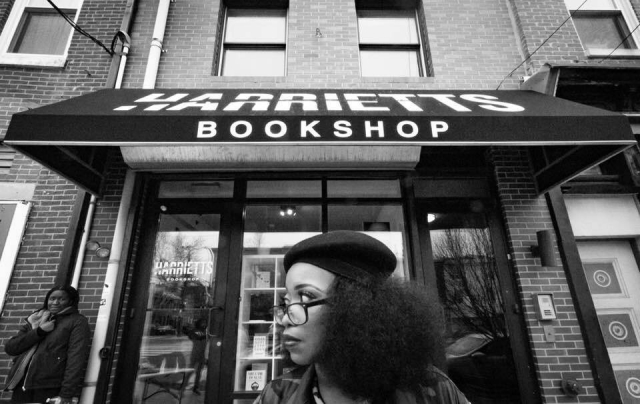“Mommy, where did you get that world in your eye?”
Alice Walker, Beauty: When the Other Dancer is the Self
“Tell me about your great grandmother, Sofiya,” I steer my car across the Benjamin Franklin Bridge from Philadelphia into Camden talking to my mother on speaker phone.
“My great-grandmotha?” She parrots back in her sing-songy Trinidadian accent.
My mother came here to the United States from her country to help me open my very first brick and mortar business—Harriett’s Bookshop—in the Fishtown section of Philadelphia back in March of 2020. Days after she arrived, I got notice that we were to immediately shut down the business due to COVID-19. The same week that Harriett’s closed, Trinidad & Tobago shut their borders indefinitely. My mother has not been back to her country for almost a year. Word is it may be another year before she can leave.

“I dunno a lot about ha, ya know,” she finishes her thought.
“I know she went blind like you,” I cut in. “I know we have that one photo.” These things we’ve already discussed, though I keep nudging her for more.
The one photo that we have of Sofiya, my great great grandmother, is from the early 1900s. She has on a white dress and a shawl. She is in her wooden rocking chair, chin up, parked in the backyard of a stone house in the San Fernando section of Trinidad. In her right hand Sofiya holds a bible. Her cloudy eyes off focus in the picture.

“My niece is also losing her sight now,” my mother adds with matter-of-factness. “She goes to my clinic back home.”
My mother had issues with her eyes even as a child, getting scolded and chastised for not answering nuns in her catholic school classroom because she could not see the chalkboard.
“I was thinking about my essay for the Princeton University Press,” I am now driving through hoods of New Jersey as I do when I need to think. “I want to call it the blind leading the blind. What do you think about that?”
“I like it,” she says with a smile in her voice. “Tell me more.”
“Well for me I think that there is a negative connotation to your blindness but in our family the blind actually do lead the blind. In our family it is always the ones who can’t see that have the most vision.” She agrees. Ase.
That night, as I do almost every night, I abuse my eye.
I rant and rave at it, in front of the mirror.
I plead with it to clear up before morning.
I tell it I hate and despise it.
I do not pray for sight. I pray for beauty.
Alice Walker, Beauty: When the Other Dancer is the Self
This year for Women’s History Month, I want to invite folks to look more at our own families. Look deeper into our own lineage and find women to celebrate as opposed to just lifting up the same historical figures that always get the shine. Say her name and let it be that of our mamas or our aunties or ours cousins. Let us ask more questions and walk away with answers about who we are and who we come from. Let us pay homage by seeking solutions through Sankofa. Let us each study our women and add onto their good deeds and extraordinary (or not so extraordinary) legacies.
Harriett Tubman, the guiding light behind our bookshop, named herself after her mother when she made it to freedom. Can you imagine being Harriett Tubman’s mother? Can you imagine admiring your mother so much that you decide to take her name? We keep two t’s in our spelling of Harriett to honor them both. Harriett’s childhood head injury left her with a lifetime of visions and vivid dreams, which she interpreted as revelations from God. Some sources say she also experienced a sort of blindness in those fits which helped to guide her and her people. I agree. Ase.
“You still can’t see out of that eye?”
Alice Walker, Beauty: When the Other Dancer is the Self
And now, here I am experiencing my own visions and vision “problems.” I find out that my retina is detaching and that something in the back of my eyes likes to get inflamed when I stress. Some days they leak tears and burn and itch after hours of placing orders or typing essays or checking emails. One of my eyes is as lazy as Harriett’s, yet I am charged with standing strong and being seen. The idea of people gawking at my ever lazier eye almost stopped me from pursuing my bookshop dream. But the fear of not being able to see only makes me want to read and write faster and more often, something neither Harriett nor Sofiya could do. I am saying to myself, it is ok to potentially be one of the blind that leads the blind if that is indeed my fate. I am also looking at my daughter’s eyes and wondering if someday she will join our coven as well. Perhaps that is a part of our legacy.
Throughout this essay I have inserted pieces of Alice Walker’s article, Beauty: When the Other Dancer is the Self, where she describes her own eyes as those that “will be tired and wander, as blind eyes will.” And I am saying to her, the mother of my literary journey, thank you for taking the lead. Thank you for letting your eyes be seen.
I park my car and look out over the Schuylkill River with the phone still in my hand.
“She was a wise woman, Jeannine, that is what we do know about Sofiya,” my mother says after an over pregnant pause. “Sofiya means wisdom. Remember that.”
And after more silence I simply say, “Ase.”
Yes indeed, I realized, looking in the mirror.
There was a world in my eye.
And I saw that it was possible to love it:
that in fact, for all it had taught me of shame and anger and inner vision,
I did love it.
Even to see it drifting out of orbit in boredom,
or rolling up out of fatigue,
not to mention floating back at attention in excitement
(bearing witness, a friend has called it),
deeply suitable to my personality,
and even characteristic of me.
Alice Walker, Beauty: When the Other Dancer is the Self
Jeannine A. Cook is the owner and curator of Harriet’s Bookshop. For the last 10 years she has worked as a trusted writer for several startups, corporations, non-profits, influencers, and most recently herself. In addition to a holding a master’s degree from The University of the Arts, Jeannine is also a Leeway Art & Transformation grantee and winner of the South Philly Review Difference Maker Award.
